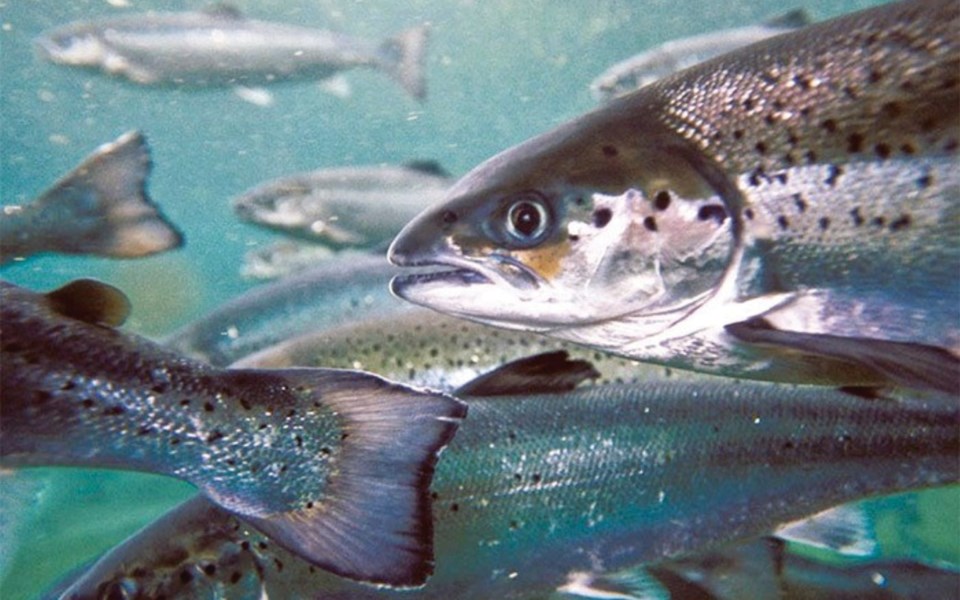On Wednesday, Canada's minister in charge of fisheries signalled she would start a consultation process to phase out open net-pen salmon farms in British Columbia — an industry many scientists say is leading to the spillover of pathogens into wild populations.
The next day, Glacier Media asked Minister of Fisheries and Oceans Joyce Murray to answer several unanswered questions — from accusations of suppressing science and regulatory mismanagement in her department to questions about what an industry "transition" actually means.
This interview has been edited for clarity.
Glacier Media: The BC Salmon Farmers Association claims that Fisheries and Oceans Canada's (DFO) own scientists dispute the link that you're making between salmon farms and the threat to wild stocks. If DFO science is not guiding this decision, what is?
Murray: I do follow science closely. I'm very aware of the department's science assessment process and the outcome of that. It's one of the first documents I read as a minister.
But I will tell you, I was concerned that there has been no assessment of the cumulative effects. The science document was risk-by-risk — tenacibaculum, piscine orthoreovirus (PRV), sea lice, etc. — and there was no cumulative assessment.
So the department is planning to update the risk assessment for aquaculture with respect to wild salmon because there also have been more research papers published on diseases like PRV and tenacibaculum since the last risk assessment was done.
Glacier Media: There have been accusations that DFO officials are holding back scientific reports, and some say they are in cahoots with the salmon farming industry. Have you looked into that and, if so, what have you found?
Murray: I've had a briefing by the science department from a number of different scientists. And that was very helpful for my understanding.
It's my job to protect wild Pacific salmon because they're facing a multiple set of historic threats, and they are in trouble.
I mean, there are a number of runs that are assessed by COSEWIC as a species at risk.
And so some of the problems like flooding in the Fraser Valley and Nicola area that have devastated salmon runs and spawning, we can't do much about in the near term.
But we can take action to reduce or manage risks that we know could exist — and that's what this is about.
Glacier Media: Will there be additional oversight given these concerns over objectivity?
Murray: There will be. We're proposing to renew two-year licenses. You know that the industry had six-year licences previously. This two-year license gives us the time to consult on a framework and really develop a plan for regulatory approach.
But the two-year licenses will also impose some tougher conditions on companies that are operating the farms.
They will have more accountability in terms of their sea lice management and monitoring.
They also will have to do more regularly reporting on the structural integrity of the infrastructure of their open net-pen farms, so we reduce risk of them being swept away, which we've seen on the East Coast and for some on the west.
And also, we're going to be looking at the farms from an area-based perspective so that we can really be assessing the cumulative effects of a number of farms that are in a similar zone, that have a cumulative effect from the multiple fish farms on the ecosystem.
Those are some ways we are toughening up the conditions, but it's within the existing regulatory framework for this two-year license renewal.
Glacier Media: What does "transition" mean? Are we talking about a total ban, land-based salmon farming, or something else?
Murray: I interpret a transition away from open net-pen farming from the perspective of 'what's the result we're looking for?'
The result I'm looking for is to have limited to no interaction between the wild salmon and the farmed salmon.
So that's what I'm going for, and by consulting broadly with industry and others, indigenous people, absolutely, as well as other stakeholders. I'm hoping to get clarity and good ideas for this plan as to actually how can we have salmon aquaculture that achieves that result of minimal to no interaction.
Glacier Media: So in the ocean or outside of the ocean?
Murray: Could be outside of the ocean, could be in the ocean.
As long as that interaction that is creating risk for wild salmon, we transition away from technology that enables that interaction.
That's what I'll be looking for.





